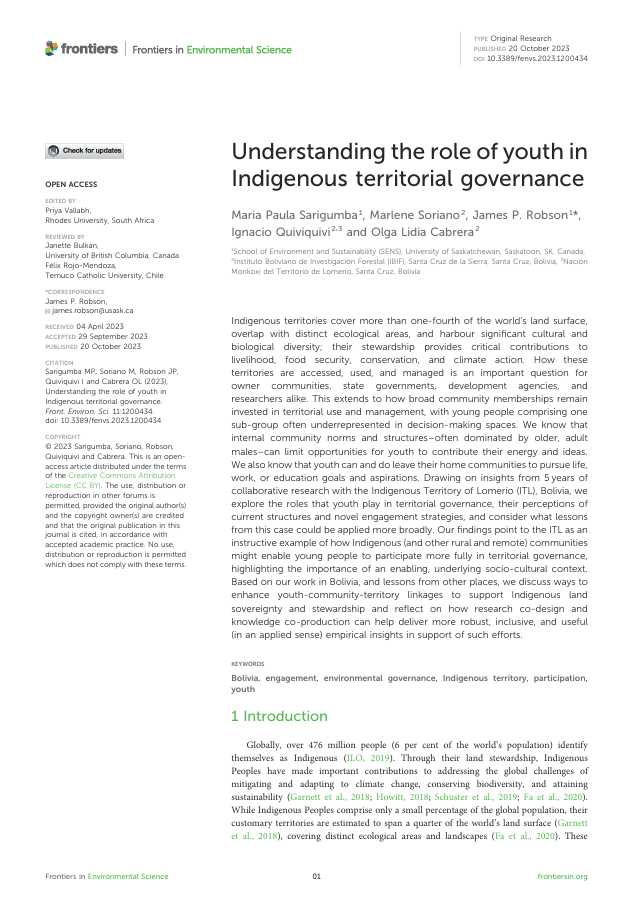Resource information
Indigenous territories cover more than one-fourth of the world’s land surface, overlap with distinct ecological areas, and harbour significant cultural and biological diversity; their stewardship provides critical contributions to livelihood, food security, conservation, and climate action. How these territories are accessed, used, and managed is an important question for owner communities, state governments, development agencies, and researchers alike. This extends to how broad community memberships remain invested in territorial use and management, with young people comprising one sub-group often underrepresented in decision-making spaces. We know that internal community norms and structures–often dominated by older, adult males–can limit opportunities for youth to contribute their energy and ideas. We also know that youth can and do leave their home communities to pursue life, work, or education goals and aspirations. Drawing on insights from 5 years of collaborative research with the Indigenous Territory of Lomerío (ITL), Bolivia, we explore the roles that youth play in territorial governance, their perceptions of current structures and novel engagement strategies, and consider what lessons from this case could be applied more broadly. Our findings point to the ITL as an instructive example of how Indigenous (and other rural and remote) communities might enable young people to participate more fully in territorial governance, highlighting the importance of an enabling, underlying socio-cultural context. Based on our work in Bolivia, and lessons from other places, we discuss ways to enhance youth-community-territory linkages to support Indigenous land sovereignty and stewardship and reflect on how research co-design and knowledge co-production can help deliver more robust, inclusive, and useful (in an applied sense) empirical insights in support of such efforts.


